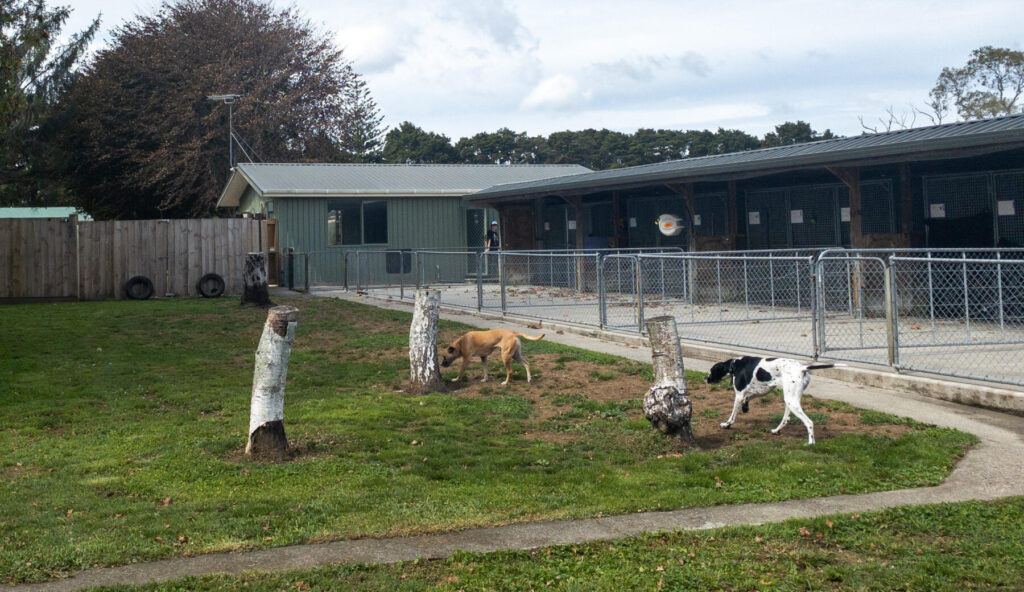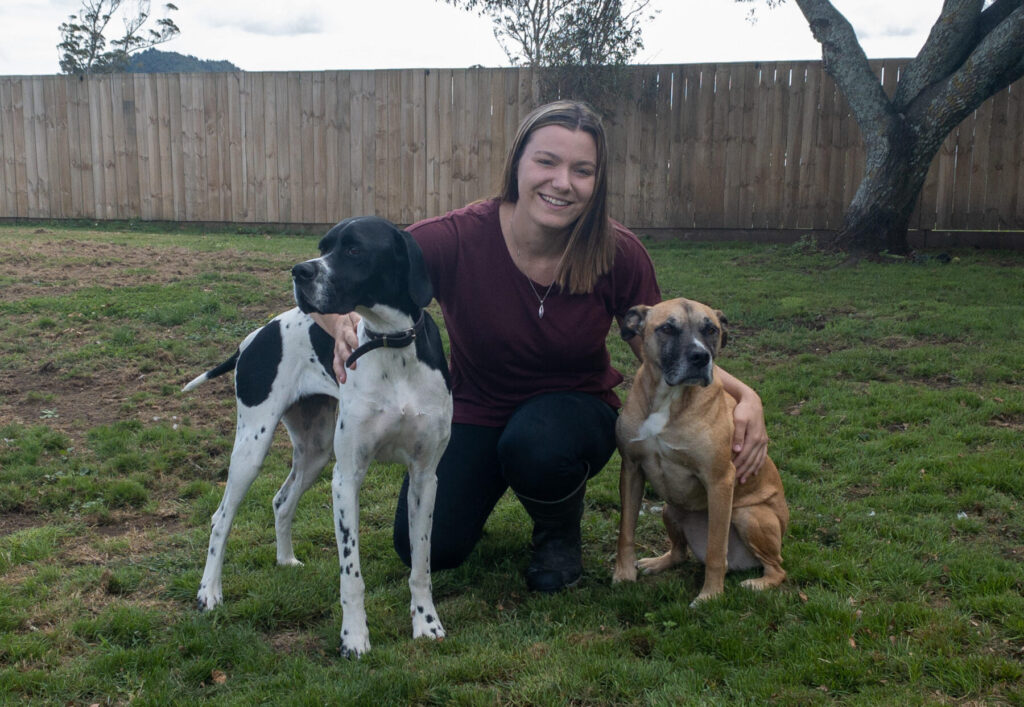Doggy Daycare with a difference
Doggy day cares are on the rise: how could this benefit your dog?

Just outside the small town of Gordonton, with a beautiful view of Taupiri Mountain, is a small doggy daycare centre called Waikato Boarding Kennels and Cattery.
Established by animal activist and dog lover, Faye Carey, the daycare service is part of a growing trend for dog owners.
Doggy daycare businesses have been around in New Zealand for the last 10 years and have grown in popularity.
According to Companion Animals, approximately a third of New Zealand households own at least one dog, a day-care service provides options for those who can’t look after them all day, every day.
Faye feels that doggy daycare eases pressure on owners, and it is beneficial for dogs, mentally and physically. She says over lockdown “a lot of people adopted ‘lockdown dogs’, and now that they are back at work they need somewhere to put them during the day”. Faye thinks this could have contributed to the recent boom in popularity of doggy daycares.
Faye Carey is an animal activist and dog lover and started Animal Rehome Waikato (Waikato Pound Pups) at the age of 16. She says running the organisation was the foundation for her career.
When Carey had her son, she decided that she wanted to do something that combined family life with continuing to work with dogs.
“It’s like a cup. You need to fill it with all of the dog’s needs, including mental and physical”
Unlike other doggy daycares, the dogs are split into different groups depending on size, so that different sized dogs play together.
Faye thinks that it is incredibly important for dogs to have both playtime and resting time, so while one group of dogs plays, the others spend time by themselves settling down. Faye describes this approach as “a cup, with which you need to fill with all the dog’s needs, including mental and physical”.

Faye says there are a huge number of benefits doggy daycare has on dogs. While they get physical stimulation of running around and playing, they also get mental stimulation, including training. To support this she has employed a professional dog trainer, Jasmine, who spends the afternoons working with dogs individually.
The daycare is a bit different to other daycares as they trial all the dogs before taking them on. Faye has a very small clientele and is very particular about what dogs she takes on. She makes all potential new clients trial their dogs for at least a day, and then Faye will decide depending on the compatibility of the new dog with existing dogs at the daycare. She also factors in the behaviour of the dog, and how difficult it will be to look after them.
There are about 30 dogs in its books, with each dog coming a different number of days. Where one dog may come once a week, another dog might come five days a week. It costs $26 to send a dog there for a day, but if you sign up for a five-day week it takes the cost down to $23 a day. This is considerably cheaper than other daycares, with these starting at about $35.
According to Faye, doggy day-cares help dogs develop important skills, while also getting physical and mental stimulation. Socialisation is so important for dogs, and doggy day-cares help them to get that, which is especially important for dogs from families where there are no other pets.




